In today's fast-paced healthcare environment, adhering to ethical compliance is more important than ever. Navigating the complexities of patient care while maintaining integrity requires a thoughtful approach and a strong commitment to ethical standards. This brief letter template can serve as a valuable resource for healthcare professionals looking to ensure compliance and foster trust within their teams and with patients. Curious to learn more about how to effectively implement ethical practices in your healthcare organization?

Clear articulation of ethical principles
Healthcare organizations prioritize ethical compliance to uphold patient dignity and trust. Fundamental ethical principles, such as beneficence (the obligation to act in the best interest of patients), non-maleficence (the commitment to do no harm), autonomy (respecting patients' rights to make informed decisions), and justice (ensuring fair treatment and access to care), guide clinical practices. For example, the American Medical Association outlines these principles within its Code of Medical Ethics, emphasizing the importance of informed consent, confidentiality, and equitable treatment. Upholding these values in healthcare settings, such as hospitals or outpatient clinics, fosters a culture of integrity and accountability, essential for maintaining professional standards and enhancing patient-provider relationships.
Confidentiality and privacy obligations
Confidentiality and privacy obligations are critical components of healthcare compliance, especially regarding patient information. Healthcare providers, including hospitals like Johns Hopkins Hospital and clinics such as Mayo Clinic, must adhere to regulations established by the Health Insurance Portability and Accountability Act (HIPAA). This federal law, enacted in 1996, mandates safeguarding sensitive patient data, including medical histories, treatment plans, and personal identifiers, ensuring they are disclosed only under explicit consent or as required by law. Violations can result in substantial fines, reaching up to $50,000 per incident, and potential criminal charges. Additionally, healthcare organizations implement policies and training programs, focusing on staff awareness and proper handling of electronic health records (EHR), thereby fostering a culture of respect and integrity concerning patient privacy. Regular audits and adherence to the National Institute of Standards and Technology (NIST) guidelines ensure continuous compliance in the evolving healthcare landscape.
Detailed reporting and accountability processes
Healthcare organizations rely on detailed reporting and accountability processes to ensure ethical compliance and uphold patient trust. These processes, encompassing rigorous documentation protocols and transparent incident reporting systems, are essential for maintaining high standards of care. Mandatory internal audits conducted quarterly, for example, allow facilities such as hospitals and clinics to identify and rectify potential ethical breaches promptly. The establishment of a dedicated ethics committee, comprised of diverse healthcare professionals, patients' advocates, and legal advisors, facilitates the ongoing review of policies and practices in line with the latest healthcare regulations and ethical guidelines. Furthermore, training programs focusing on ethical decision-making are instituted to empower staff members, ensuring that they recognize and respond appropriately to ethical dilemmas. Continuous monitoring of adherence to established guidelines creates an environment where accountability is prioritized, fostering a culture that values ethical behavior in patient care.
Conflict of interest disclosures
In healthcare organizations, conflict of interest disclosures are crucial for maintaining ethical standards and transparency. Healthcare professionals, including physicians and nurses, must report any financial ties to companies, such as pharmaceutical or medical device manufacturers, that could influence their clinical decisions. These disclosures typically include details about stock ownership, consulting fees, or sponsorships received from industry partners. Regulatory bodies, such as the American Medical Association (AMA) and the Centers for Medicare & Medicaid Services (CMS), mandate these disclosures to prevent compromised patient care ethics. Institutions are required to establish clear policies outlining disclosure processes, timelines, and potential consequences for non-compliance, ensuring that all staff members remain aware of their obligations to protect patient welfare and uphold professional integrity.
Commitment to continuous ethical training
Healthcare organizations prioritize ethical compliance by committing to continuous training for staff on ethical standards and practices. Regular training sessions, such as workshops and seminars, ensure every employee is well-versed in ethical guidelines, including patient confidentiality, informed consent, and the principles of beneficence and non-maleficence outlined in the Hippocratic Oath. This training also addresses current issues like telemedicine regulations and data security, which are crucial in a rapidly evolving healthcare landscape. By investing in ongoing education, healthcare institutions demonstrate a dedication to fostering a culture of integrity and accountability, ultimately enhancing patient trust and care quality.

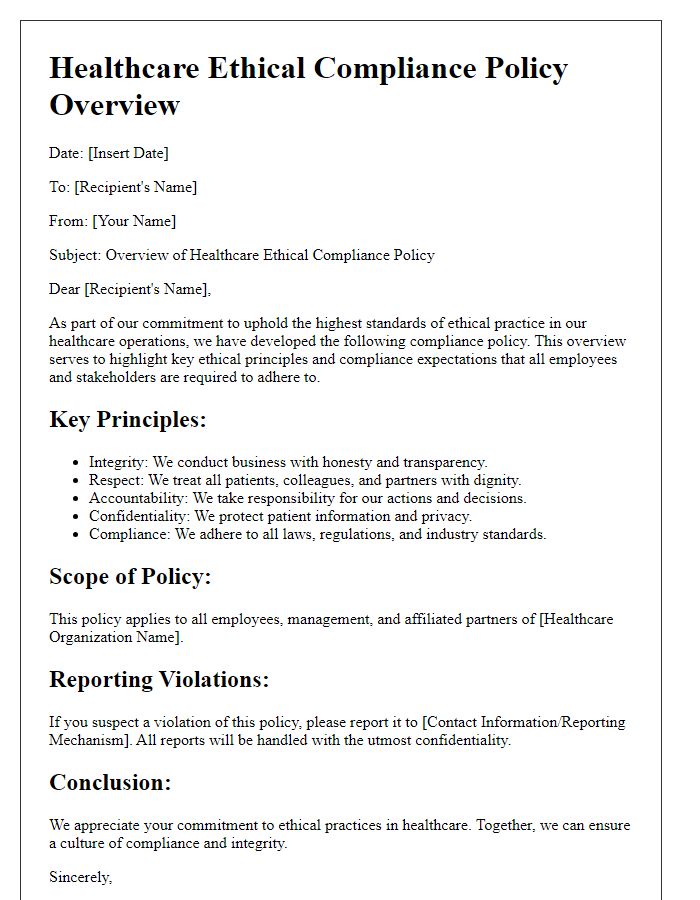
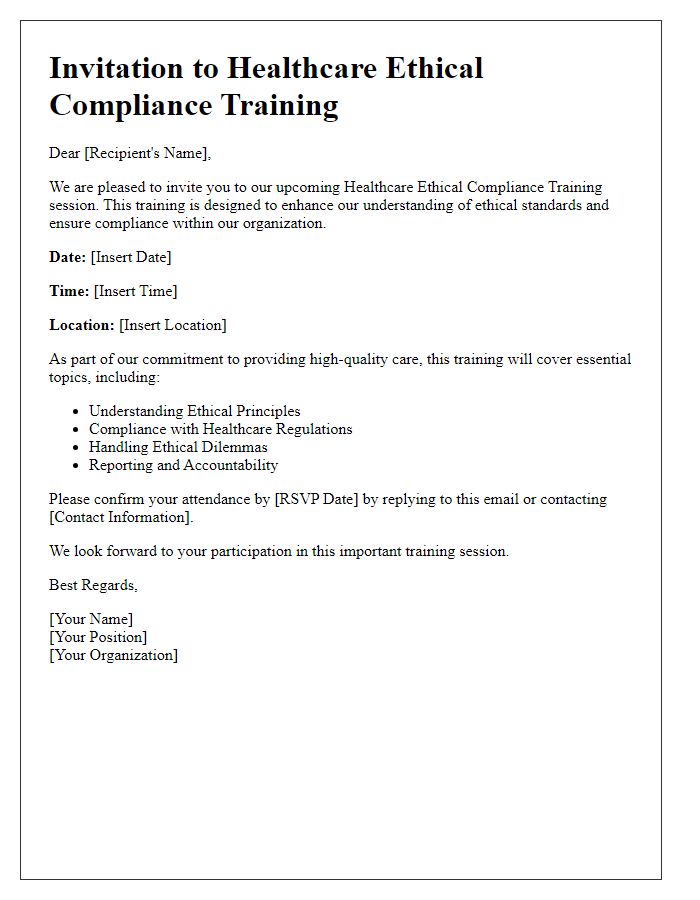
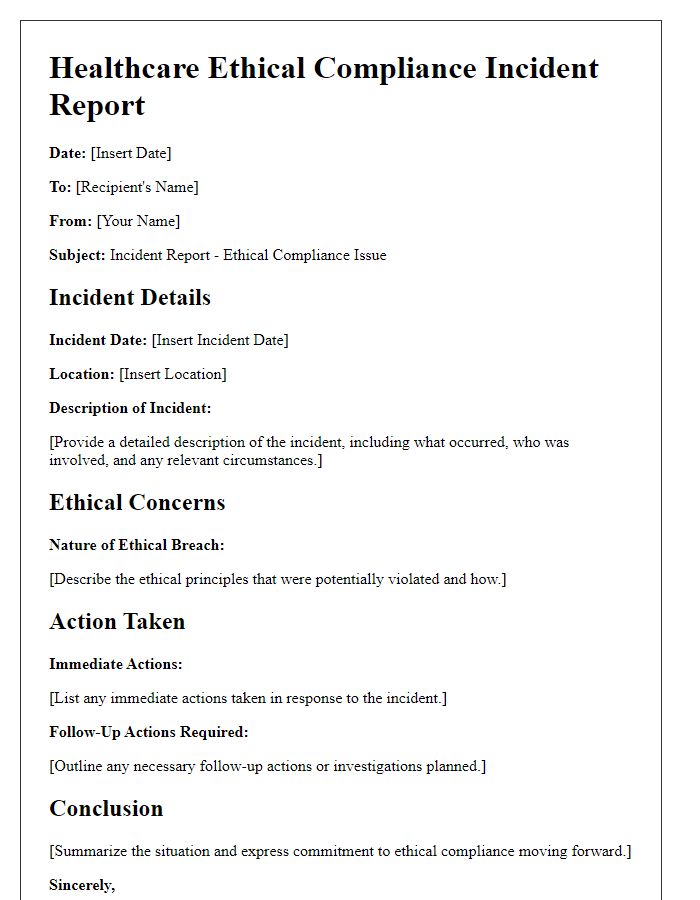
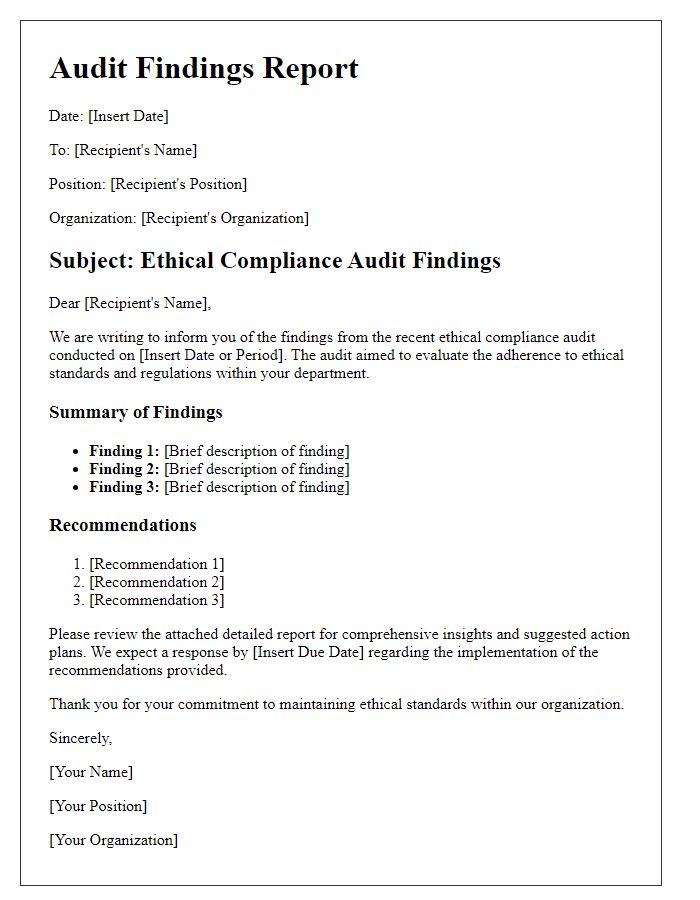
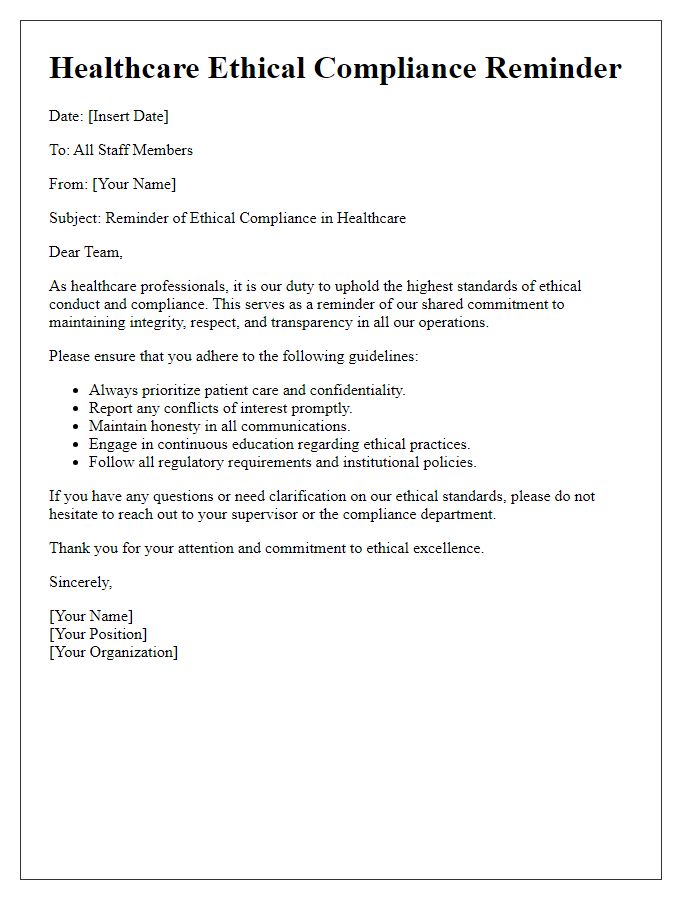
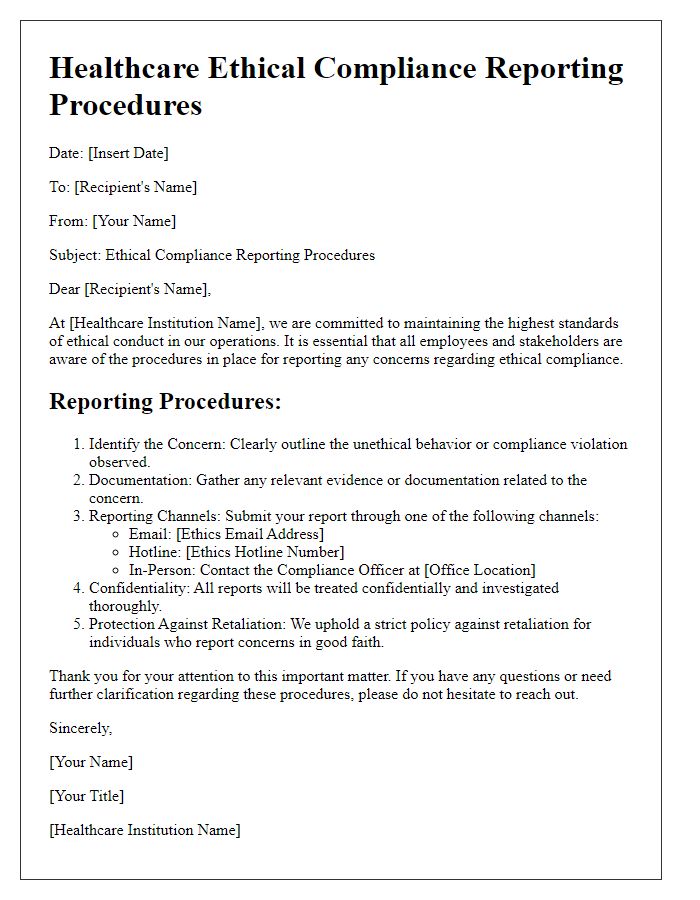
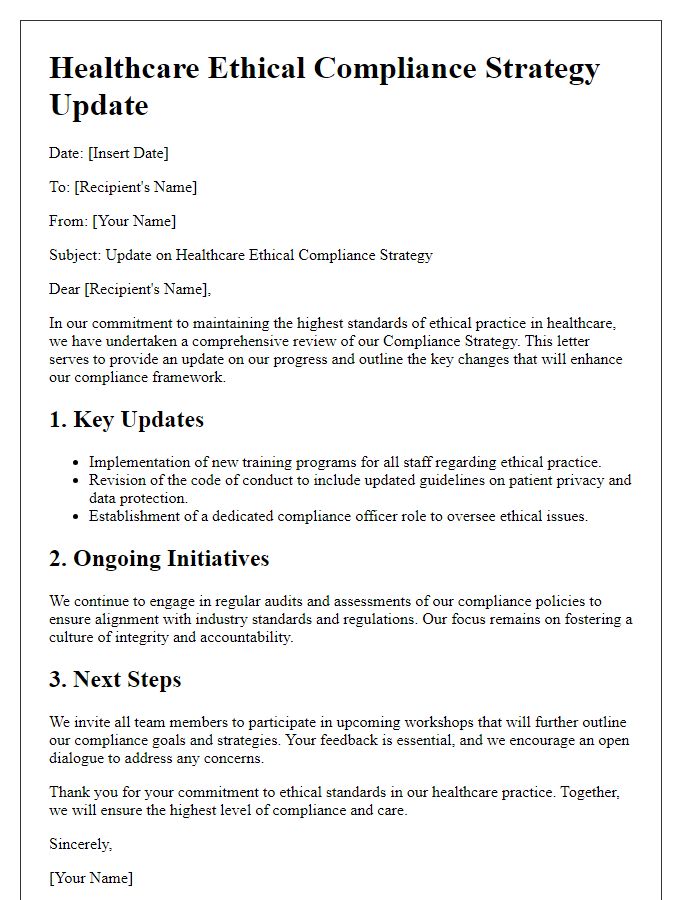
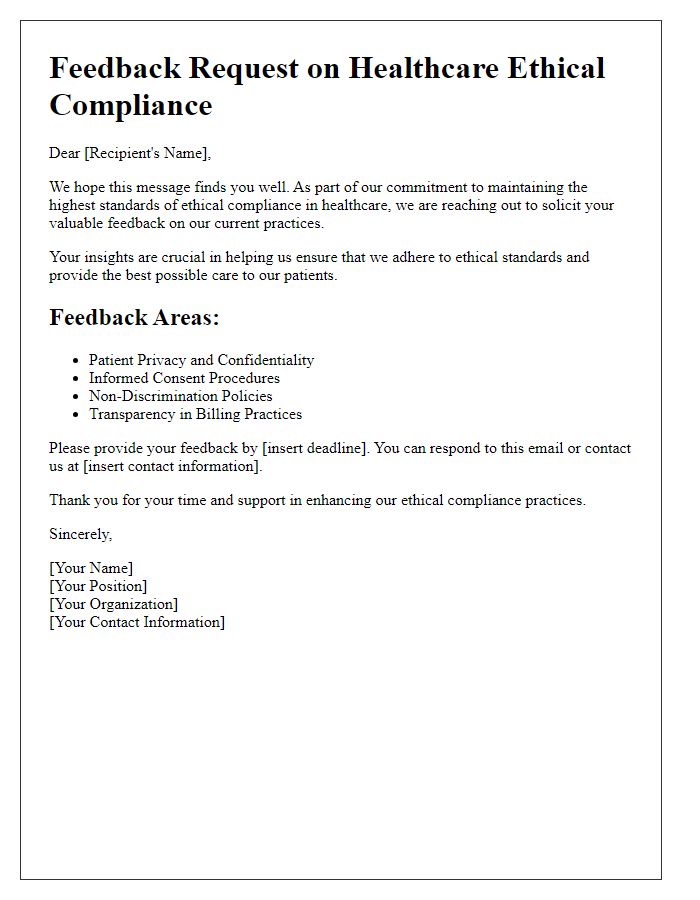
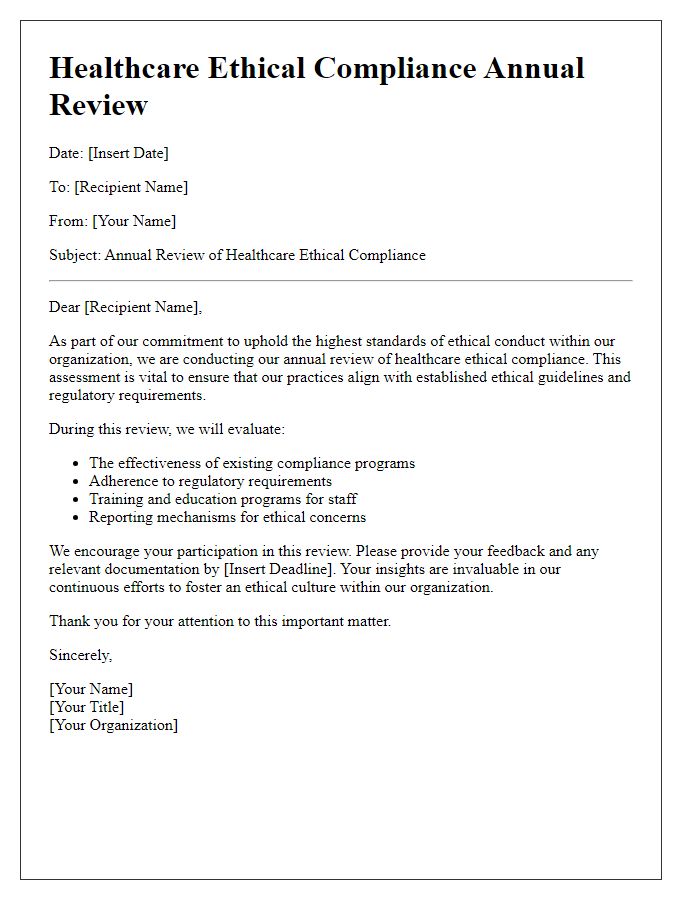
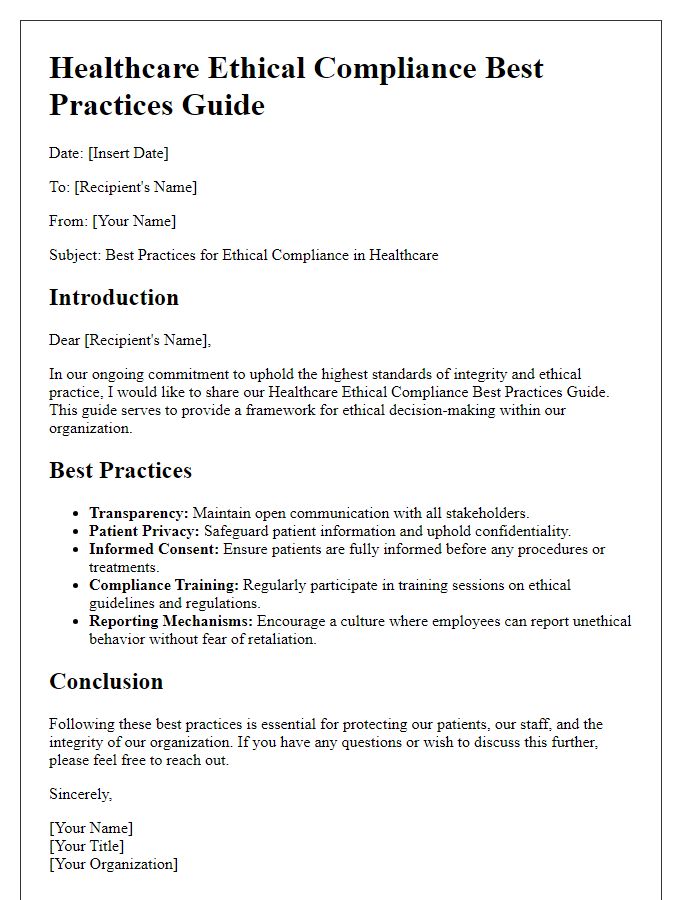


Comments